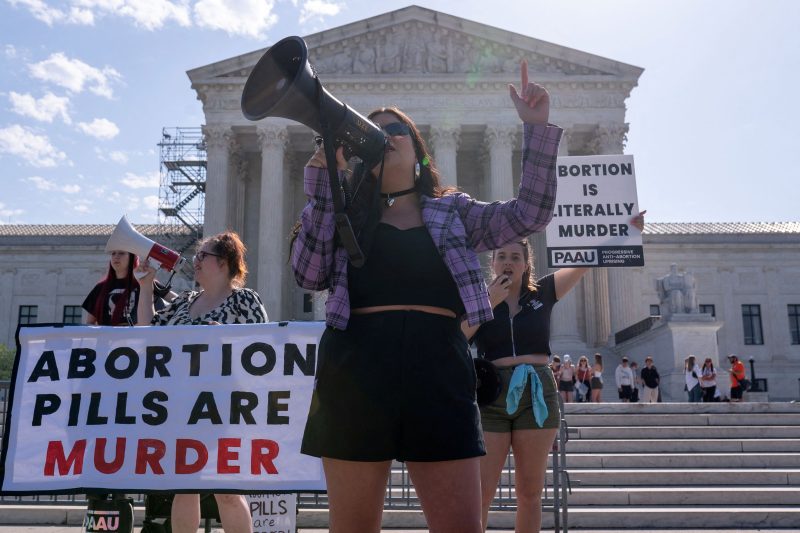
Supreme Court’s Abortion Pill Case: A High-Stakes Challenge for Conservatives
The current discourse swirling around the Supreme Court’s recent decision to review a case involving a federal policy regarding abortion drugs is a particularly tense topic for the right or conservatives. This case in question challenges the longstanding requirement that mifepristone, one of two drugs commonly used to terminate pregnancies, must be picked up in person at a clinic. Because the decision could possibly reshape the landscape of abortion regulations, it is fraught with anxieties and tension for the right. This article will examine the various reasons why this case may be causing unease for conservatives.
First, the decision to review the abortion pill case signifies a potential shift in how abortion will be regulated in the United States. It marks the first major abortion-related case to come before the Supreme Court since President Biden’s inauguration. This leads to uncertainty, making conservatives apprehensive about the potential outcomes of the case, especially in light of the liberal-leaning tendencies of the current administration.
Second, the present composition of the Supreme Court raises concerns. Although the Supreme Court has a conservative majority, with six out of nine justices known to have conservative leanings, it is not guaranteed that these justices will vote as a unified block. Furthermore, there’s the unpredictable factor of how the court’s three liberals might influence the judgment.
The third factor lies in the perception of public opinion on abortion. Despite surveys indicating that a majority of Americans favor at least some form of legal abortion, conservatives fear that reducing regulations on abortion drugs could skew this sentiment. Relaxing regulations and increasing access to abortion drugs may shift public opinion towards a stronger pro-choice stance, presenting a sociopolitical challenge for conservatives or the right.
Moreover, conservatives worry about the precedent that the decision may set in future cases concerning abortion. The decision could potentially result in the further loosening of restrictions on abortion beyond the current case. It could pave the way for the reversal of previous regulation, or potentially open the ground for new regulations that are less restrictive.
The final concern for conservatives is the potential expansion of telemedicine abortion services. If the in-person requirement is lifted, mifepristone could be sent by mail, making telemedicine abortions more accessible. This accessibility might increase the number of abortions, a prospect that many conservatives are vehemently against, given their pro-life stance.
In conclusion, the Supreme Court’s decision to review the abortion pill case embodies a series of potential shifts in the status quo of abortion regulation, precipitating a sense of unease among American conservatives. The looming possibility of change
